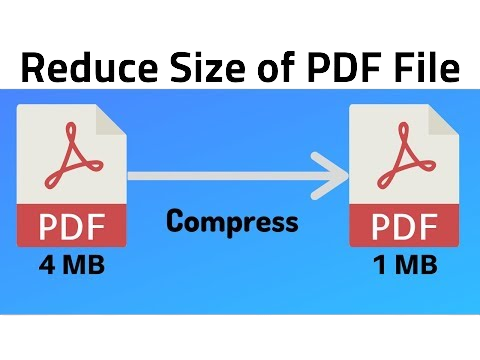JSON to XML Converter Online Tool
JSON to XML Converter Online Tool In the realm of data exchange and interoperability, JSON (JavaScript Object Notation) and XML (eXtensible Markup Language) have emerged as two popular data formats. Each possesses its own strengths, and the ability to convert between them is crucial for seamless data integration. In this article, we will explore the advantages of utilizing an online JSON to XML converter tool. By delving into the process, benefits, and considerations, we'll shed light on how this tool can enhance efficiency and productivity for businesses and developers alike.
JSON to XML Converter
Displaying JSON to XML Converter Tool Easily Convert JSON code to Text by Using this Tool.txt.JSON to XML Converter Online Tool
Section 1: Understanding JSON and XML Data Formats This section will provide a concise explanation of both JSON and XML formats, highlighting their individual characteristics and use cases. By understanding their structures, readers will gain insights into why the need for conversion arises and how it can benefit data manipulation and sharing.
Section 2: The Importance of Data Conversion in the Modern Digital Landscape In this segment, we will emphasize the significance of data conversion in contemporary businesses. With diverse systems and applications relying on different data formats, seamless conversion between JSON and XML becomes imperative for maintaining data consistency and enabling smooth data exchange.
Section 3: Introducing Online JSON to XML Converter Tools Here, we will introduce the concept of online converter tools and focus on the advantages they bring to the table. The discussion will revolve around convenience, user-friendliness, and the elimination of manual data conversion efforts.
Section 4: How an Online JSON to XML Converter Works This section will provide an overview of the conversion process performed by these tools. We will break down the steps involved, explaining how the tool interprets JSON data and transforms it into XML format, ensuring data integrity and accuracy.
Section 5: Advantages of Using Online Converter Tools In this segment, we will delve into the benefits of adopting an online JSON to XML converter. These advantages include time savings, reduced human errors, increased productivity, and improved data compatibility across various systems.
Section 6: Ensuring Data Security and Privacy As data privacy is of paramount importance, this section will discuss the measures taken by reputable online converter tools to safeguard sensitive information during the conversion process. Addressing security concerns will instill confidence in readers considering the adoption of such tools.
Section 7: SEO Optimized and User-Friendly Tools A critical consideration for any tool is its user-friendliness and impact on SEO. Here, we will explore how well-designed online converter tools can enhance user experience, ensuring a seamless data conversion process that aligns with search engine optimization strategies.
Conclusion: The adoption of online JSON to XML converter tools is an asset for businesses and developers seeking efficient and reliable data conversion solutions. By understanding the significance of data interchangeability, embracing the advantages of such tools, and prioritizing data security, organizations can harness the full potential of their data and streamline data conversion efforts with ease.
Unraveling the World of JSON to XML Conversion: A Comprehensive Online Tool Guide
In today's digital landscape, data interchange plays a pivotal role in transmitting information seamlessly across diverse systems. JSON (JavaScript Object Notation) and XML (Extensible Markup Language) are two widely adopted data formats, each with its own strengths and applications. However, there are instances where you might need to convert JSON data to XML format or vice versa to meet specific requirements or integrate systems effectively. In this blog article, we will delve into the world of JSON to XML conversion and explore the functionalities of an exceptional online tool designed for this purpose.
- Understanding JSON and XML
Before we delve into the conversion process, it is essential to grasp the fundamental differences between JSON and XML. JSON is a lightweight, human-readable data interchange format, primarily used for transmitting data between a server and a web application as an alternative to XML. It is structured as key-value pairs and nested objects, making it easy to parse and manipulate.
On the other hand, XML is a markup language that facilitates the storage and exchange of data between different systems. It uses tags to define elements and is often utilized in scenarios that require complex data structures and strict validation.
- The Need for Conversion
While JSON and XML are both extensively used in various applications, there might be instances where you need to convert data from one format to the other. Some reasons for JSON to XML conversion include:
-
Interoperability: When integrating systems that require different data formats, converting JSON to XML or vice versa enables seamless communication.
-
Legacy Systems: Some older applications may only support XML, necessitating JSON data to be converted for compatibility.
-
Industry Standards: In certain industries or protocols, like SOAP-based web services, XML is the standard format, requiring JSON data to be transformed.
-
Data Transformation: Organizations might opt to use XML for specific purposes like data transformation, reporting, or compliance reasons.
- The JSON to XML Converter Online Tool
In the digital age, online tools have revolutionized various tasks, including data conversion. A powerful JSON to XML Converter online tool comes to the rescue when you need a quick and efficient solution for transforming your data.
This web-based tool offers the following features:
-
Simple User Interface: The converter tool provides an intuitive user interface, making it accessible even to non-technical users.
-
Two-Way Conversion: Not only does it convert JSON to XML, but it also performs XML to JSON conversion, accommodating your diverse needs.
-
Error Handling: The tool incorporates error handling mechanisms to ensure smooth and accurate conversions, detecting and reporting any issues that might arise during the process.
-
Formatting Options: You can choose between different formatting options for the output XML, allowing you to tailor the structure to your requirements.
-
Multi-Platform Support: The tool works seamlessly on various platforms and devices, whether you're using a desktop computer, tablet, or smartphone.
- How to Use the JSON to XML Converter Tool
To demonstrate how simple it is to use the JSON to XML Converter, we'll walk through a step-by-step conversion process:
Step 1: Access the JSON to XML Converter tool through your preferred web browser.
Step 2: Copy and paste the JSON data into the provided input box or upload a JSON file directly.
Step 3: Select the conversion direction - JSON to XML.
Step 4: Click on the "Convert" button, and the tool will instantly generate the XML output.
Step 5: Optionally, you can adjust the output format based on your requirements.
Step 6: Once satisfied with the results, you can either download the XML file or copy the converted XML data to your clipboard.
- Best Practices for JSON to XML Conversion
While the converter tool simplifies the process, adhering to some best practices can optimize the outcome of your conversions:
-
Data Validation: Ensure that your JSON data adheres to the standard format to prevent potential errors during conversion.
-
Nested Objects: Handle nested objects in the JSON data efficiently to maintain the integrity of the converted XML.
-
Attribute Mapping: When converting to XML, consider how you want to map JSON attributes to XML elements and attributes.
-
XML Schema: If you're converting to XML for a specific application, refer to the XML schema to ensure compliance.
Conclusion
In conclusion, understanding the intricacies of JSON to XML conversion is crucial in today's interconnected world. The JSON to XML Converter online tool offers an invaluable resource for swiftly transforming data between these two formats, providing a seamless solution to integration challenges and interoperability requirements. By following best practices and utilizing such user-friendly tools, you can efficiently manage data interchange and harness the full potential of both JSON and XML data formats.





.png)




